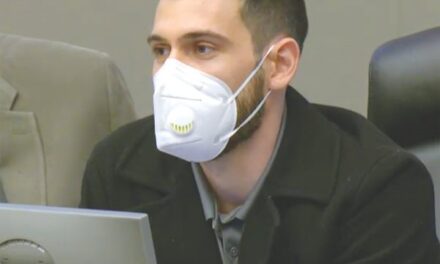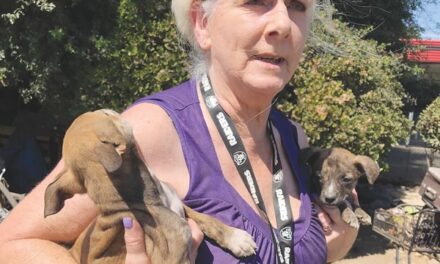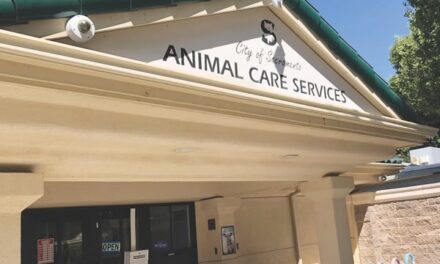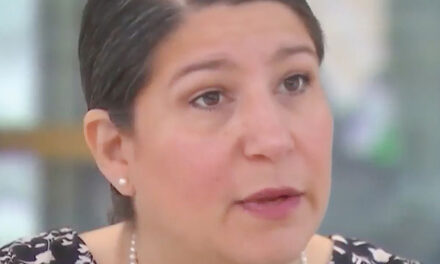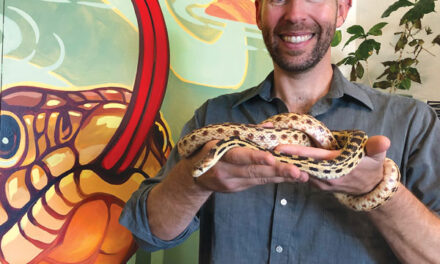Tahoe Park resident Lynn Bishop joined dozens of other dog lovers last year answering a call from the city’s Front Street Animal Shelter. Foster a dog for the holidays.
Approximately 60 cars lined up for drive-through fostering. “It was like an assembly line,” says Bishop, who took home Roscoe, a 6-year-old unneutered chihuahua mix brought to the shelter as a stray.
On any given day, as many as 345 dogs are fostered through Front Street. Many are not spayed or neutered.
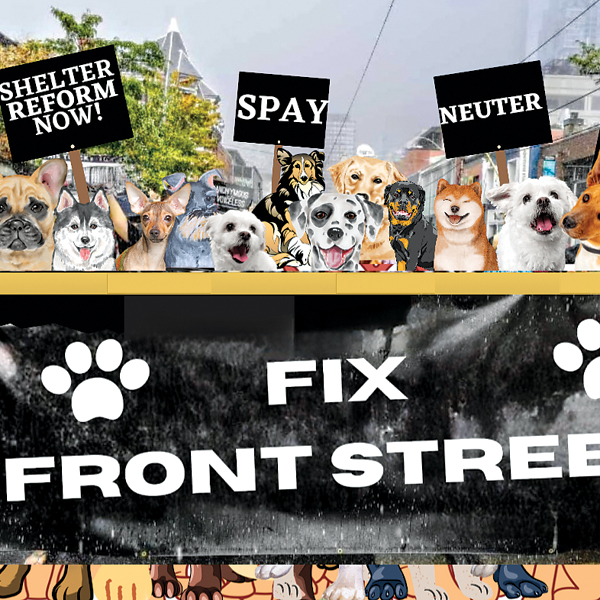
“It’s a lot of animals in foster care,” says Front Street Manager Phillip Zimmerman. “Unfortunately, when you have that many animals in foster care, there’s a lot of work that goes along with it.”
Tracking those dogs falls on one full-time employee. A part-time intern and off-site volunteer assist.
The job should include ensuring the dog is the right fit for the home. Is he the correct size, breed, age and energy level for the foster family? Is the home clean and safe, fenced and gated? Does the foster parent understand the time commitment for potty training, socializing, exercising and veterinary visits? What about providing personality information for website listings and social media, and taking the dog to adoption events?
If the foster dog is not spayed or neutered, are other dogs in the home altered?
Zimmerman sees these questions as “barriers” to fostering and adopting. “In our field, we want to reduce barriers,” he says. Placing a dog waiting for spay/neuter surgery in a home with an unaltered pet is considered on a “case-by-case basis.”
Zimmerman says there are a “plethora of reasons” why as few as 24 dogs—out of 345 in foster care—are listed for adoption on the Front Street website. One reason is that more than 200 dogs are “foster-to-adopt.” Foster families have elected to keep the canines.
“Shelters have found a way around the spay and neuter mandate upon adoption,” says attorney Hilary Bagley Franzoia, who headed up the Sacramento County District Attorney’s Animal Cruelty Unit and Animal Cruelty Task Force. “Now they foster-to-adopt, providing the release without spay and neuter.
“That is a cheat they find necessary to save lives,” she says. “But that program is only as good as their diligence after the fact.”
For example, 19 days after Lynn Bishop took Roscoe home, she hadn’t heard from Front Street. She called the number provided by the shelter and left a message. Roscoe needed a neuter and dental before he could be adopted. No call back. She waited 10 more days, then texted. A return text the next day reported that Roscoe’s surgery was finally scheduled.
In the end, Roscoe became a “foster-to-adopt.” When Bishop and her husband considered keeping him, Front Street gave them 15 days to decide. That date came and went with no follow up from Front Street. A week later, Bishop had to notify the shelter they were adopting Roscoe.
Because shelter pets cannot be adopted until they are altered, Front Street’s “foster-to-adopt” dogs are in limbo. “The biggest backlog is spay/neuter surgeries,” Zimmerman says.
“Do we honestly think that he has adequate systems in place to prevent the breeding of those fostered animals in the community?” Bagley Franzoia says. “Hell, he has no systems to stop breeding in the city kennels.”
Last month, Front Street volunteers reported unaltered male and female dogs housed in the same kennels—some caught in the act.
“It would seem in all the brilliance that is leadership at Front Street, it is acceptable to place unaltered males and females inside the kennels together,” says Elyse Mize, a local animal advocate. Mize helped launch Fix Front Street, a Facebook page bringing attention to what they call the city shelter’s mismanagement.
Zimmerman confirms he houses unaltered animals together. “In the perfect world, we would be within our capacity for care,” he says. “We would not have to double house dogs. Unfortunately, we are not seeing animals move as fast as we would like and the intake has increased. So we have to make choices on the best fit.”
Assistant City Manager Michael Jasso adds, “It’s being done for what we perceive is a greater good, which is being able to accommodate the animals versus having an increased euthanasia rate.”
If this is an acceptable practice, in 63 days—the gestation period for a dog—won’t there be more dogs to shelter and potentially kill?
“Front Street has had a longstanding practice under director Zimmerman to allow owners to reclaim their animals for free, with no spay or neuter requirements,” Mize says. “It is entirely feasible that pregnant dogs are being sent home to their oblivious families. In many cases, they will end up just like their parents, unfixed and back in the shelter at the expense of the city of Sacramento, i.e., taxpayers.”
Zimmerman blames the backlog of spay/neuter surgeries on a nationwide veterinarian shortage. Front Street has one staff veterinarian and fills in with contract vets.
“Though many claim there is no solution to the spay/neuter crisis because of a veterinary shortage, we disagree,” says Julie Virga, a former city shelter volunteer who helped launch Fix Front Street. “Solutions can always be found with effort, sincere concern and resources. We have made the effort, Front Street has the resources, but we need city leaders to provide sincere concern and support for this effort.”
In a recent email to Zimmerman and city officials, Virga reported that Fix Front Street secured the services of a local veterinarian and her team willing to provide low-cost surgeries on a contract basis.
“We propose they work two to three days a week until the backlog of spay/neuter of shelter animals is addressed and then two days a week to provide these services to Sacramento citizens and the animals of the unhoused that are literally breeding out of control in our neighborhoods.”
Virga says her proposal went unanswered by Zimmerman.
“No shelter is perfect,” Zimmerman says. “A small group of people who are extremely loud have chosen to just pick on Front Street. We are not going to communicate with those people anymore.”
Fix Front Street has brought concerns, mostly ignored, to Zimmerman and city officials for the past three years, Virga says. “If city leaders do not act to help animals, nothing will change at Front Street.”
Cathryn Rakich can be reached at crakich@surewest.net. Follow us on Facebook, Twitter and Instagram: @insidesacramento.



